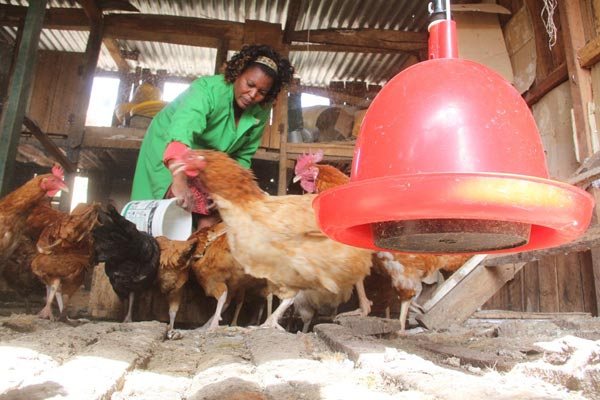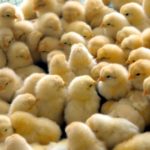Due to their ease of management, good survivability, low production cost and good market pricing, a growing number of Kenyans are now venturing into commercial Kienyeji chicken farming. Here is a look at some of the critical factors to keep in mind when venturing into Kienyeji chicken farming in Kenya:-
Decide the kind of poultry operation that you want to venture in
Focus or differentiation is a key success factor in business. When you are planning to venture into a poultry farming operation, you ought to have a clear idea on the kind of poultry farming operation that you are planning to focus on. Differentiation is always key to business success. It allows you to focus your mind on a single goal and innovate around that to achieve success. There are various kinds of poultry operations that you can venture in the kienyeji area. These include:-
- Kienyeji egg production
- Selling Kienyeji fertilized eggs
- Raising your kienyeji chicken for meat
- Raising pullets and selling them at point of lay to farmers in your locale
- Raising day old chicks and selling to farmers when they are four to six weeks old
- Hatching day old chicks and selling these to farmers
Pick a niche where you would want to focus on and direct your investments on that. You can’t be all over the place when it comes to agribusiness. Choose your unique niche and grow with it.
Choose the breed of poultry that you would wish to raise
In Kenya, we normally use the term “kienyeji” to refer to a whole host of chicken breeds including hybrid varieties that can do well in “kienyeji” conditions. There are various hybrid chicken breeds that aren’t too demand and which can do well in tough Kenyan conditions with minimal management. These breeds also grow fast and are relatively excellent layers. They include the following:-
- KARI Improved Kienyeji Chickens
- The traditional kienyeji chickens
- Kuroiler chickens
- Rainbow Rooster chickens
- Indbro chickens
Every breed has specific characteristics that can suit your farming aims. Check our article on the hybrid chicken breeds in Kenya to understand these characteristics and determine which of these would be ideal for your farming goals.
Farm Location
The location of your poultry farm is also an important consideration. It ought to be in a slightly isolated location with good accessibility. Never situate your poultry farm too close to the residential areas or to other poultry farms. This is for biosecurity reasons. For comprehensive information on a suitable kienyeji chicken farming site requirements, read our article on Kienyeji chicken housing.
Kienyeji Chicken Farming Funding Sources
Starting a kienyeji chicken farming operation will cost you money. A medium to large poultry housing will cost you anywhere from Ksh.50,000 to Ksh.500,000 depending on the materials used and the size of the poultry house and then you have to factor in the cost of equipment, cost of day old chicks, vaccination costs, feeding costs, labour costs and other related costs. For a serious poultry farming operation, you will at least need some significant capital outlay. There are various sources of financing that you can tap into to fund your poultry farming venture. You can check out some of our poultry funding suggestions in this article.
Farm Facilities
If you are going to run a modern poultry farming operation, then you will have to invest in certain modern poultry farming equipment and machinery. These can include battery cage farming systems, poultry pan feeding systems, automatic watering systems, poultry feed milling and poultry formulation systems, manure management systems and many others. If your kienyeji chicken farming venture will be highly intensive, this is an option that you will seriously need to factor in.
Poultry feeding
Poultry feeding accounts for more than 67% of the total cost of poultry production. In a kienyeji chicken farming operation where the commercial feeds are supplemented with traditional free ranging and other food leftovers, the cost of feeding may come down a bit. But still, you have to factor in the high cost of feeding your poultry otherwise you are going to run of funds and go bankrupt. Chickens eat a lot! For large operations, you may have to opt for poultry feed formulation and start formulating your own chicken feeds.
Poultry health
Chickens have to be vaccinated on schedule and given antibiotics sparingly in order to reduce mortality and loss of productivity and low yields due to disease burden. You must therefore factor in the cost of medicine or the cost vaccination into your operating costs. Check out our Kienyeji vaccination schedule and follow it religiously to ensure your chickens remain in optimal health.

